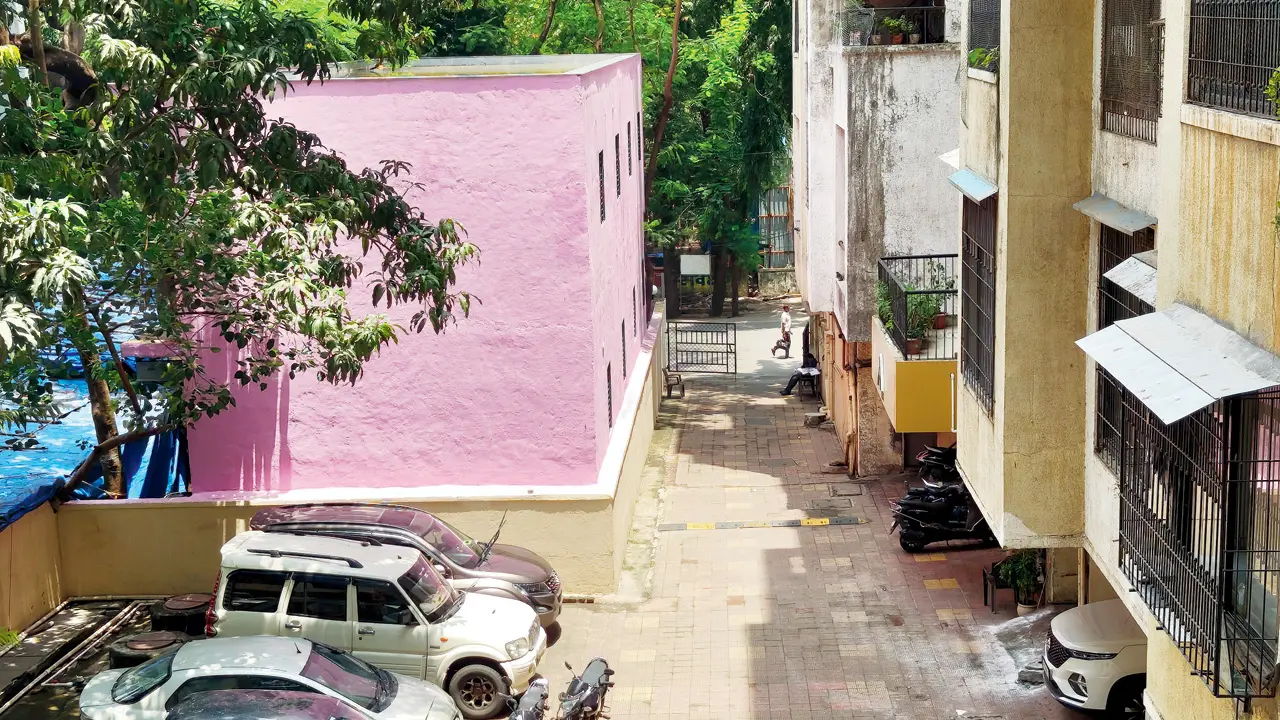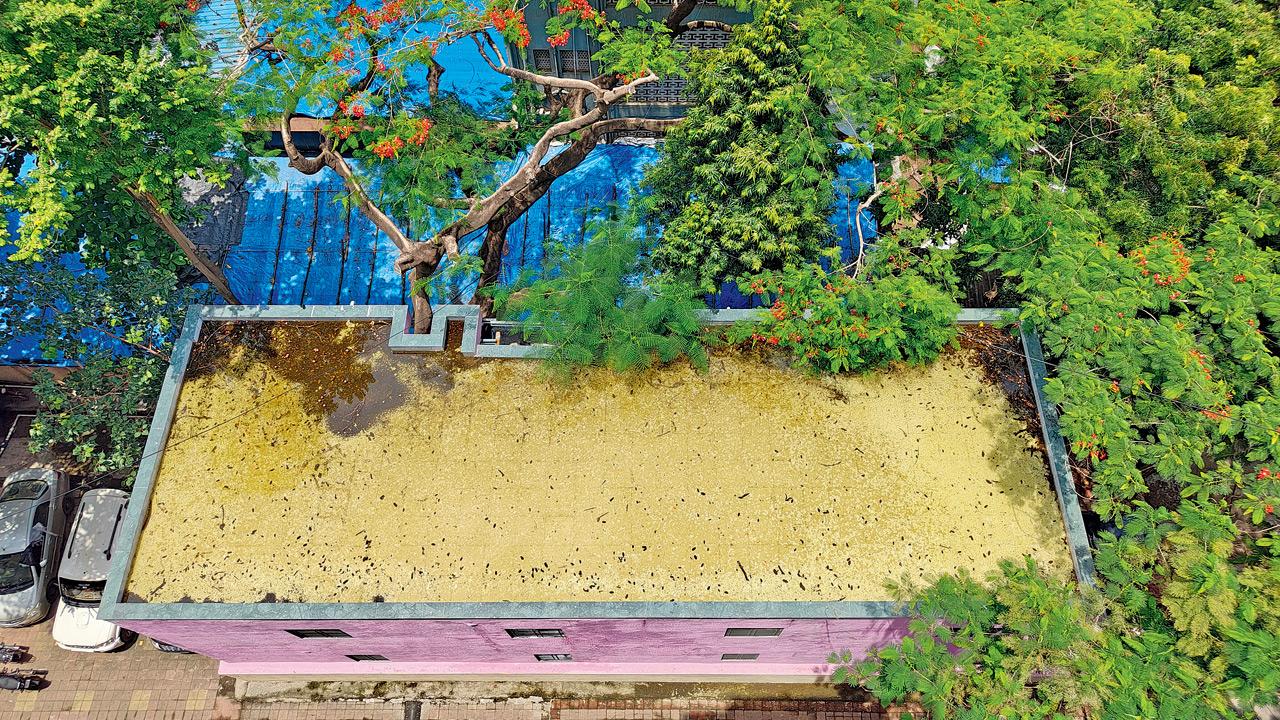Despite strict warnings to housing societies on mosquito breeding, a neglected civic structure in Chandivli lies waterlogged, raising health concerns among residents. Chandivli locals allege mosquito breeding due to water accumulation on a locked BMC structure. Despite dengue cases, residents say authorities show double standards in enforcing rul

The structure remains locked, with no clarity on its purpose. Pics/Ritika Gondhalekar
Concerned residents from Woodland Society in Chandivli (Ward 72) have raised alarm over a neglected structure on CTS 18B, near Vijay Fire Road. They say it’s part of a BMC amenity plot and has become a breeding ground due to stagnant water. Ironically, while the BMC issues strict notices to societies on preventing mosquito breeding, its own properties often escape scrutiny. Thie double standard has left citizens frustrated, especially with rising dengue and malaria cases during monsoon.
Residents share woes
“The city witnessed its first proper rains around May 7. And within a few days, my daughter was diagnosed with dengue. We observed that the terrace of this unknown structure wasn’t cleaned, which has led to water accumulation. We immediately informed the secretary. We do not know if he has raised any complaints. But it has been a month now that they haven’t drained the water, nor have they cleaned the terrace,” said Liyaquath Khan, 55, a resident of the society.
 Accumulation of water on the terrace of the structure has raised concerns of mosquito breeding
Accumulation of water on the terrace of the structure has raised concerns of mosquito breeding
Afraid of getting attacked by mosquitoes, the residents have also started avoiding going downstairs during the evenings. “It’s not just about going down for a walk in the evening. Since the rains began in April, this water accumulation started, and we started noticing that there are many mosquitoes suddenly inside our home. We did not notice so many mosquitoes before this structure was constructed. Now we are forced to shut our windows throughout the day, and so ventilation has become a problem too,” said Pramila Jain, 40, resident of the society.
Residents also questioned who would take responsibility in case more and more people fall sick. “We have many senior citizens and children living in our building. This irresponsibility of the authorities will land us in medical trouble. Will they then take responsibility for our lives and treatment?” questioned Surjit Siani, 50, who also resides in the same society.
Activists speak
“Chandivli was originally an industrial area, and as per rules, if a developer wants to convert any land parcel from industrial to residential, they must give five per cent of the land to the BMC. This five per cent of land is ideally meant for developing amenities for local residents. However, in this case, neither the MHADA, which constructed the structure for BMC, nor the BMC itself, put up any board informing what was being built before the construction started,” said Mandeep Singh Makkar, founder of the Chandivali Citizens Welfare Association.
“The structure hasn’t been built on a proper foundation. Instead, it relies on the society’s retainer wall, completely ignoring the rule that mandates a 10-metre gap between retainer walls. It’s been over three months since the structure was built, and it remains locked, with no clarity on its purpose. This has now caused an issue — waterlogging on the terrace, which is troubling residents. Whenever dengue or malaria is reported in a private building, BMC quickly takes action. Why aren’t the same rules applied to the authorities themselves?” Makkar asked.
Authorities respond
When questioned, BMC's Assistant Municipal Commissioner L Ward, Dhanaji Herlekar said, “The draining of the water will be done at the earliest, and we will ensure that water does not accumulate again. Regarding the usage of the facility, I will look at the list of suggested usages of such properties and accordingly ask MHADA to put the board up soon.”
 Subscribe today by clicking the link and stay updated with the latest news!" Click here!
Subscribe today by clicking the link and stay updated with the latest news!" Click here!










